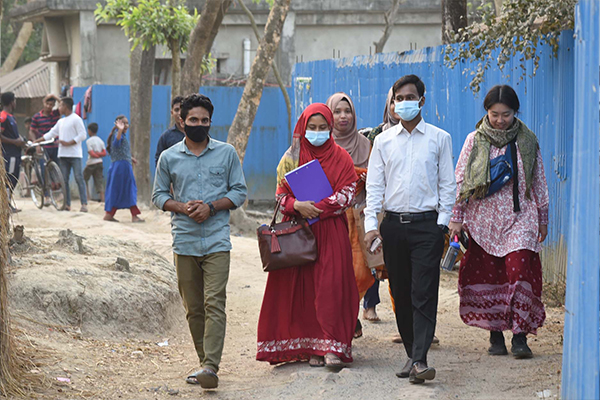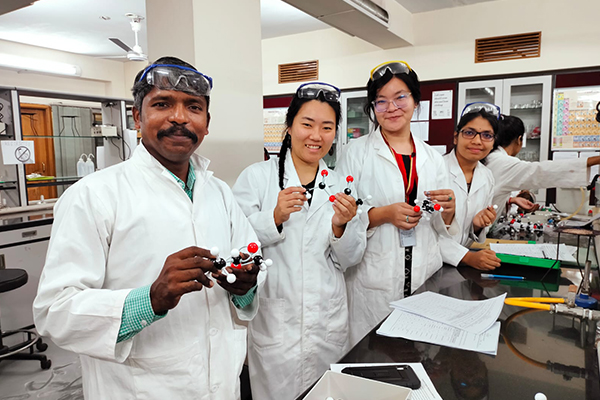Chemistry major put to good use in Bangladesh
Bachelor of Science student, Uka (Jasmine) Nakahigashi has always had a passion for science, but it’s a desire to contribute to humanitarian causes that is driving her career in chemistry.
In the second year of her degree, Jasmine’s chemistry major was recently put to good use in Bangladesh as part of a New Colombo Plan Scholarship she says changed her life.
Located in the Bengal Basin, one of the worst areas in the world for arsenic contaminated groundwater, Bangladesh is grappling with the long-term effects of arsenic poisoning on its population.
Helping to find solutions to address arsenic poisoning was the focus of Jasmine’s time in the region. She interned with small non-government organisation, Chemists Without Borders (CWB) to support the development of arsenic mitigation strategies in the Teriail community in Chittagong.
Jasmine engaged in water sampling and testing, staging community focus groups, a literature review, and local consultations, all to support recommendations for the community and a research paper and donor grant report about the issues.

During her internship, Jasmine undertook arsenic testing in tube well water in Teriail.
“Back in the 1960s, the best advice was to avoid surface water because of the heavy impact of water-borne diseases and high salinity,” Jasmine said.
“Tube wells were supposed to provide the safe alternative but unfortunately they were often built in areas where the groundwater was still contaminated by high levels of arsenic.”
Jasmine says efforts to address arsenic poisoning in Bangladesh focus on better education and communication, better science, and urgent action to improve safe water supplies.
“One of the goals outlined in the paper I prepared is to ensure that every household has a safe water source within 100 metres and but also that residents know where safe sources are and why they must be used.”
“That paper is now with CWB, and we are hoping to get support for the actions recommended.”
“My personal goal is to work as an analytical chemist to develop improved arsenic testing kits, ones that are easier to use and cheaper to roll out.”
Beyond the science, Jasmine says perhaps the most valuable lesson from her time in Bangladesh has come from the resilience of the people she met.
“During my time with CWB, I interned at the Asian University for Women, an institution dedicated to providing an education for women from all over Asia who have experienced hardships, where I assisted in chemistry lessons and tutored English and Maths, a pre-undergraduate requirement for many of the students,” Jasmine said.
“I've developed a lot as a researcher and problem-solver and that has given me more confidence.”
Jasmine plans to continue working with CWB and return to Bangladesh.

Jasmine in the chemistry labs at the Asian University for Women.